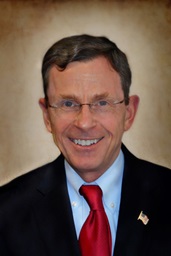There is too much confusion about United Methodist Doctrine. Some of the comments on my earlier blog raised questions about whether the Social Principles are UM doctrine or not. I have offered an interpretation of the shape of UM doctrine in my bookUnited Methodist Doctrine: The Extreme Center.I argue there are three levels:
Constitutionally Protected Standards of Doctrine: Constitution, Articles of Religion, Confession of Faith, General Rules, Wesley’sExplanatory Notes Upon the New Testament,and Wesley’sSermons.
Contemporary Statements of the General Conference: Part II of the BOD (Our Doctrinal History, Our Doctrinal Heritage, Our Theological Task), Part III Ministry of All Christians (including the Mission Statement), Part IV Social Principles, doctrinal parts of the BOD,Book of Resolutions.
Liturgy:The United Methodist HymnalandUnited Methodist Book of Worship.
I argue that these three levels differ in authority with Standards of doctrine (the hardest to change) being most authoritative and liturgy being least authoritative.
My concern is that most delegates to the General Conference do not know what we mean by the phrase “United Methodist Doctrine”. Seminary graduates from some schools have studied my book. But some seminaries do not use it and some annual conference Boards of Ordained Ministry do not want to focus on doctrine and so ignore it.
My academic concern is that since this book was published (about 10 years ago) there has been no serious discussion of my proposal. On some days I think it is because I have interpreted theBook of Disiciplinecorrectly. On other days, I worry that there are people who strongly disagree with me but we have not yet found ways of talking about it well. For example, The Social Principles are doctrine because all of our doctrine is intended to be persuasive. It is also authoritative with whatever authority people give to our church as a whole.
My leadership concern is that we need a broader and deeper understanding in order to pursue our mission. Our doctrine is fundamental to the mission statement and to our practice of evangelism and our work for social justice. It is also part of the glue holding our global church together.
Like what you're reading? Support the ministry of UM News! Your support ensures the latest denominational news, dynamic stories and informative articles will continue to connect our global community. Make a tax-deductible donation at ResourceUMC.org/GiveUMCom.



